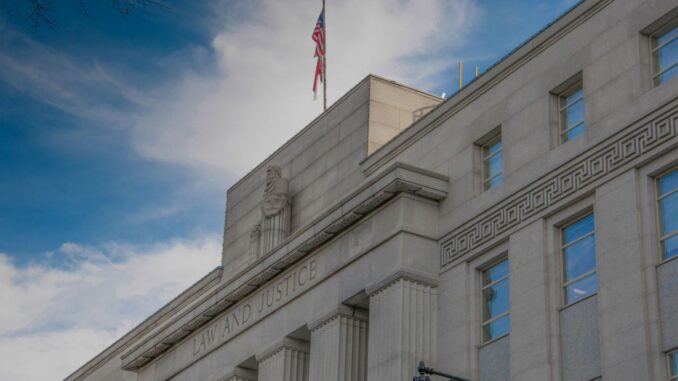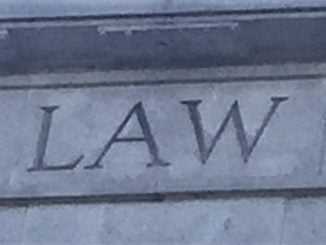
RALEIGH — The ongoing legal case allowing over 55,000 felons to vote in the November midterm elections will be heard by the North Carolina Supreme Court instead of the state’s Court of Appeals according to an order issued on May 6.
Issued by Associate Justice Anita Earls, the order takes the case away from the state appeals court by granting the plaintiffs’ request for a discretionary review by the high court. In doing so, the Supreme Court bypasses a motion for an en banc hearing by all 15 judges on the Court of Appeals made by lawmakers.
Currently, Democrats outnumber Republicans on the Supreme Court, four to three. The opposite is true on the Court of Appeals which has ten Republicans and five Democrats.
The en banc request was made last month following the Court of Appeals granting a motion by lawmakers to stay the Mar. 28 ruling in which a Wake County Superior Court three-judge panel voted 2-1 allowing felons to vote this fall but keeping them from participating in the May primaries.
Lawyers for Republican legislators wrote last week that the trial court “misread legislative history” about the 1973 law, which they say relaxed the requirement for restoring voting rights and was championed by the NAACP, said the Associated Press.
Along with Earls’ discretionary review order are two separate directives; one dismissing the plaintiffs’ request to suspend normal rules as moot and another denying an expedited schedule for the case.
The majority Democrat state Supreme Court’s May 6 order is the latest politically charged case takeover. Last month, the court issued an order to fast-track the case involving the North Carolina Voter ID constitutional amendment. The order was similar to the felon voting case in that the order was issued after a discretionary request by the plaintiffs, effectively bypassing the Court of Appeals.
Prior to being elected to the N.C. Supreme Court, Earls, as the founder and attorney at the Southern Coalition for Social Justice, had sued the state over voter ID and redistricting.
In the redistricting case of North Carolina League of Conservation Voters v Hall, attorneys for the Republican legislative defendants argued for Earls to recuse herself based on her past legal involvement and the idea that the Earls was biased on the issue due to campaign funds given to her in 2018 by the National Democratic Redistricting Committee).
The NDRC is led by former Obama Attorney General Eric Holder, who also campaigned with Earls during that election cycle.
The maximum donation of $5,200 was given to Earls’ campaign by the NDRC’s PAC in 2018 and on the same day, the group gave $250,000 to the North Carolina Democratic Party’s “judicial coordination fund.” Around 80 percent of that quarter of a million, or roughly $199,000, ended up supporting the Earls for Justice Committee.



